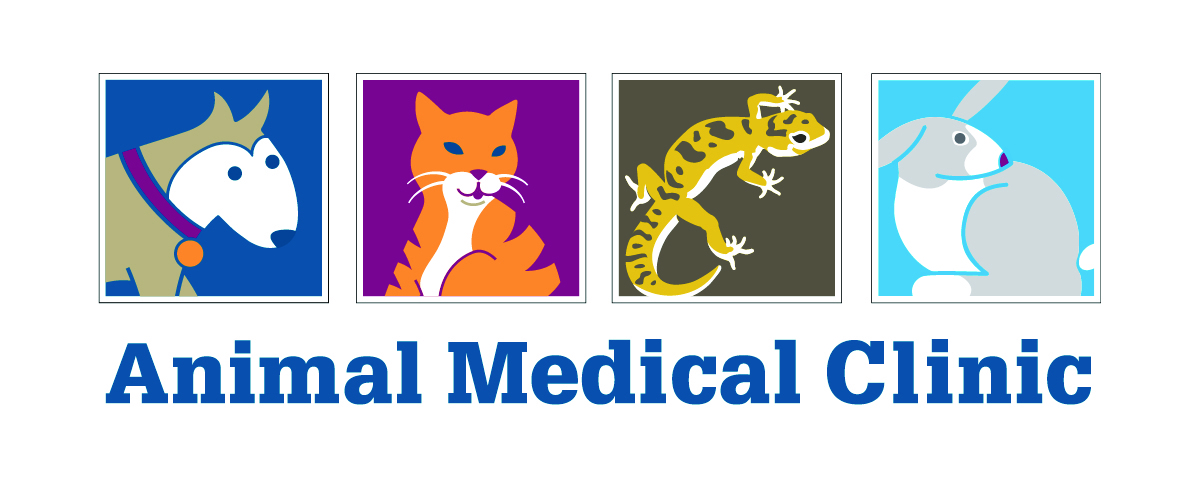
February is Pet Dental Health Awareness Month!
Did you know February is National Pet Dental Month? Each year during February we take a little extra time to help teach pet owners about the importance of dental health and how we can best improve and protect our pets teeth.
There are two major aspects of dental care for our pets; at-home care and professional dental cleanings at the clinic. At-home care is the most important aspect of prevention, and for dogs, cats, and ferrets, brushing our pets teeth is the most effective at home option. For animals that won’t allow us to brush their teeth (and there are many!) dental treats, chews, diets, and oral rinses are also available. Once tartar and plaque start to build up, however, at-home care won’t be enough on its own, and a full professional dental cleaning is needed to restore the teeth to prime condition. A full professional cleaning includes probing and charting each tooth, an ultrasonic scaling of all teeth above and below the gum line, polishing the teeth, and radiographs (x-rays) of the teeth and underlying roots for full dental evaluation. These cleanings are performed under general anesthesia to make sure our pets are comfortable and that the procedures are as thorough and complete as possible.
So why bother with dental health? Untreated dental disease can lead to tartar build up and gingivitis (inflamed gums). Bacteria in the mouth can then cause gum recession, oral discomfort, and eventually very painful abscesses. Bacteria can also spread into the bloodstream and affect the heart, kidneys, liver, and lungs.
How do we start brushing our pets’ teeth? The first step to teeth brushing is making sure our pets are comfortable with us touching their face. This is best done when our pets are young, just 8-12 weeks of age, and positively reinforced with lots of treats and praise. Be sure to go slow, and not push your pets beyond what they are comfortable with. As your pet becomes more comfortable with their face being handled, you can start to lift up their gums, and then touch their teeth. Once there, start using a little bit of pet toothpaste on your finger. Most pet toothpastes are flavored like treats, so pets generally enjoy this part! Be sure never to use human toothpaste, as these are not meant to be swallowed and may be toxic. Once your pet is ok with your finger rubbing their teeth, you can try to slowly work up to a little gauze square, finger brush, or for larger dogs a soft bristle tooth brush. Again, be sure to go nice and slow, use lots of positive reinforcement, and not push your pet past their tolerance limits. Not all pets will adjust to teeth brushing, and for these pets we can consider our dental treats, diets, chews, and oral rinse options.
How about our other pets? Dental health is very important in all species, but how we keep teeth healthy can vary. For rabbits, guinea pigs, and chinchillas, their teeth are always growing, so we don’t worry about brushing. However, we do still need to make sure their teeth are healthy. The best way to ensure good dental health in these animals is feeding them the right diet to keep their teeth strong. Grass hays (such as timothy hay) have the right calcium/phosphorus ratio to build strong teeth, and should always be available for these animals. If these continuously growing teeth are weak, they can start to bend. If they bend they no longer grind down correctly, and just get longer and longer, eventually poking into the gums or tongue. Signs of oral discomfort in these animals may include a lack of appetite or severe drooling (seen as a wet chin); be sure to contact us right away if you notice either of these symptoms!
What about reptiles? While we don’t usually brush our reptiles’ teeth on a preventive basis, they can develop dental disease, usually in the form of stomatitis, or mouth rot. Look out for any discoloration along the gums, usually brown or black, which can be a sign of early disease. Early intervention is key for reptiles to keep their mouths healthy.
There’s a lot to know about pet dental health, but the most important thing is knowing that our pets’ dental health is just as important as (and closely related to) their general health. If you have any questions or concerns about your pets’ mouth, don’t hesitate to call the clinic to schedule an exam.


